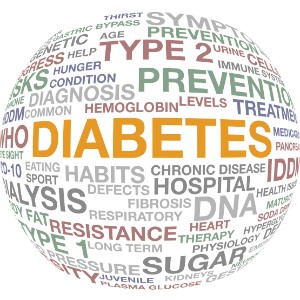
Researchers tracked the health outcomes of 2,167 bariatric surgery patients between 2002 and 2014. Compared with an identical sized control group, they found that after seven years of follow-up, only 4.3 percent of bariatric surgery patients had developed type 2 diabetes, as opposed to 16.2 percent of the matched control group.
Study results were published in The Lancet Diabetes & Endocrinology journal.
“Obesity is strongly linked to insulin resistance and pancreatic beta cell function, two of the hallmarks of type 2 diabetes,” said Jon L. Schram, MD, medical director, bariatric surgery, Spectrum Health Medical Group, and one of the most experienced bariatric surgeons in the nation. “In fact, 3 percent of morbidly obese individuals develop diabetes each year.”
Bariatric surgery is recommended for morbidly obese patients whose body mass index (BMI) is 40 or above, as well as for obese patients with BMI between 35 and 39.9 and who have at least two obesity-related such as diabetes, sleep apnea, gastroesophageal reflux disease, high blood pressure or high cholesterol.
Dr. Schram says that four out of five patients now opt for vertical sleeve gastrectomy, a newer procedure that removes up to 80 percent of the stomach
“It’s not only the small size of the remaining stomach that creates a feeling of fullness,” Dr. Schram said. “This procedure, like the traditional gastric bypass procedure, also reduces production of a hormone that controls hunger.”
Dr. Schram said that many morbidly obese patients experience up to a 70 percent decrease in excess weight a year after the surgery and are able to resolve many of their related medical conditions.
Like many of Dr. Schram’s patients, Betsy Ulicki, has seen drastic changes in her diabetes. The Ottawa County, Mich., resident underwent bariatric surgery in 2012, losing a total of 72 pounds.
“I’ve been off of an insulin pump since the day of my surgery, and I’ve been off insulin since three months after surgery,” Ulicki said. “I now take glucosagen, which is a diabetes medicine, but I just take it once in the morning. It’s one pill and that’s all I have to do.”
Anne Kemmer underwent bariatric surgery a little more than one year ago. Not only has she lost 60 pounds, she has also seen improvement in her diabetes and other conditions related to obesity.
“In the first two months, I was off my diabetic medication, off my high cholesterol medication, and I no longer had to wear a C-pap machine at night when I sleep,” Kemmer said. “The results are amazing–and they’re fast.”
 /a>
/a>
 /a>
/a>
 /a>
/a>